
Table of Contents
The best protein source is entirely subjective and can be based on several considerations such as:
- Individual needs,
- Lifestyle choices,
- Personal values and feelings,
- Current state of health.
A source of protein considered best for someone may be bad for another. While proteins, regardless of source, play similar roles in metabolism, there are a couple of differences attributable to sources.
In this article, we’ll take an overview of the sources of dietary proteins before delving into some subtle or obvious differences that exist between these sources.
Do keep in touch by signing up for our newsletter:
Introduction to protein sources.
Proteins can be sourced from a wide variety of foods each offering unique benefits and nutritional profiles. The primary natural sources are plants and animals. There are also protein supplements like protein shakes or drinks as covered in another article. The protein shakes are themselves derived from plant and animal sources.
As one of the 3 macronutrients, proteins are utilized in the body for various functions such as
- Production of enzymes,
- Hormones,
- Immune function,
- Provision of energy, and
- Tissue growth and repair.
For these reasons, they are critical for your general health and well-being. However, they shouldn’t be taken in excess to avoid mild to serious symptoms associated with taking too much proteins. You may want to see the 15 serious symptoms of excess protein consumption.
Notwithstanding, getting enough protein in your diet is important because without adequate protein intake, the body will struggle to repair and maintain body tissues which ultimately affects your overall health and physical performance.
Additionally, digestion of ingested food becomes a struggle due to insufficient digestive enzymes thereby accelerating the process of malnutrition. Furthermore, its negative impact on immunity makes you more susceptible to diseases and infections.
With all that has been stated, the importance of adequate protein intake cannot be overemphasized but how do you get the best proteins for your needs? This brings us to the comparison of the two main sources of protein, plants, and animals, as mentioned earlier.
By deeply understanding the importance of protein and how a source can impact your health, you can make informed choices in meeting your nutritional requirements in a way that supports your physical health and mental well-being.
Animal-based protein sources.
Animal-based protein sources include a wide variety of foods from meat and fish to dairy products. These are rich sources with complete amino acids but some come with nutritional profiles that represent drawbacks to what healthy nutrition should be as stated in the Internal Journal of Epidemiology.1 This makes it necessary to consume them in moderation.
A serving of cooked beef has up to 26g of protein. This represents up to 50% of the minimum daily protein need for someone who weighs 70kg as outlined in a table titled The Daily Protein Intake for a Man or Woman by Body Weight, created in a previous topic you may want to see.
The protein content of eggs depends on their size as stated in another topic that dealt with the protein content of eggs. One large egg contains about 6.3g of protein while extra-large eggs offer you more than 7g each.
While the above-mentioned animal-based protein sources may come with high levels of fats and saturated fatty acids, fish and poultry give you leaner options yet with a good deal of protein. A serving of Salmon and Tuna gives you about 25g and 24g of protein each in addition to their omega-3 fatty acids richness which is beneficial to your cardiovascular health as published in the Journal of Internal Medicine2 and also in the Journal of the European Society of Cardiology (ESC).3
Plant-based protein sources.

Plant-based protein sources are very popular, especially among vegetarians and vegans. Whereas most are not particularly high in protein, some have as much protein content as animal sources or even more. Some of them are listed in a previous article on vegetables with high protein content you may want to read.
Plant protein sources are often rich in fiber apart from other distinct advantages. However, most of them not only have lower protein content in comparison to animal sources, but they are often lacking in some essential amino acids which makes them incomplete protein sources. For this reason, vegetarians and vegans have to eat a wide variety of plant sources to obtain all the amino acids their body needs.
Notwithstanding, there are plant-based complete protein sources as discussed in another article that may pique your interest especially if you are a vegetarian or vegan.
Animal protein versus plant protein: 12 point comparison.
No matter the protein source, proteins from either source can be utilized in the body for similar functions and synthesis and repair of vital body tissues. Humans can be allergic to aspects of either of the two protein sources like gluten and lactose.
However, there are some differences between animal-based and plant-based protein sources as we’ll highlight in the table below.
| Comparison criteria | Animal-based sources | Plant-based sources |
|---|---|---|
| Protein type | Complete proteins | Incomplete proteins |
| Fatty acid profile | Higher in saturated fatty acids | Lower in saturated fatty acids |
| Dietary fiber | Lacking | Present |
| Carbohydrate content | Lower | Higher |
| Anti-oxidants | Lacking | Present |
| Phytonutrients | Lacking | Present |
| Iron type | Heme-irons used in the synthesis of hemoglobins | Non-heme irons |
| Rate of absorption | Faster | Slower |
| Digestibility | Easier and faster digestion | Slower digestion |
| Cardiovascular health | Increase the risk of cardiovascular diseases | Lowers the risk. |
| Cholesterol content | Some are high in cholesterol | They are mostly low in cholesterol |
| Cancer risk | May increase the risk of colorectal cancer | Lowers the risk of rectal cancers according to research.4 |
These are just a few differences. There are a couple of others not listed here ranging from initiation of inflammation to elevated cancer risks.
Comparison of plant and animal-based proteins: Which is better for you?
Both animal and plant-based proteins have their unique benefits in the body. Deciding on which is better for you will depend on your unique individual needs, preferences, and current state of health. Vegetarians and vegans will certainly go with plant sources.
An anemic patient is better off with animal sources of protein for their supply of heme irons needed for the synthesis of hemoglobin. Someone at risk of cardiovascular disease or already battling with poor cardiovascular health should be better off with plant-based sources as documented in the Journal of Preventive Cardiology.5
Furthermore, people suffering from chronic constipation will need more fiber-rich diets which is where plant-based sources will be of greater benefit. For most people, a good blend of both sources is usually best for optimal health and nutrition.
So, that’s all on this topic. Do drop your questions in the comment section. See you on the next topic.
References.
- Victor W Zhong, Norrina B Allen, Philip Greenland, Mercedes R Carnethon, Hongyan Ning, John T Wilkins, Donald M Lloyd-Jones, Linda Van Horn, Protein foods from animal sources, incident cardiovascular disease and all-cause mortality: a substitution analysis, International Journal of Epidemiology, Volume 50, Issue 1, February 2021, Pages 223–233, https://doi.org/10.1093/ije/dyaa205 ↩︎
- Harper CR, Jacobson TA. The Fats of Life: The Role of Omega-3 Fatty Acids in the Prevention of Coronary Heart Disease. Arch Intern Med. 2001;161(18):2185–2192. doi:10.1001/archinte.161.18.2185 ↩︎
- Clemens von Schacky, William S. Harris, Cardiovascular benefits of omega-3 fatty acids, Cardiovascular Research, Volume 73, Issue 2, January 2007, Pages 310–315, https://doi.org/10.1016/j.cardiores.2006.08.019 ↩︎
- Sieri S, Agnoli C, Pala V, Grioni S, Palli D, Bendinelli B, Macciotta A, Ricceri F, Panico S, De Magistris MS, Tumino R, Fontana L, Krogh V. Dietary Intakes of Animal and Plant Proteins and Risk of Colorectal Cancer: The EPIC-Italy Cohort. Cancers (Basel). 2022 Jun 13;14(12):2917. doi: 10.3390/cancers14122917. PMID: 35740583; PMCID: PMC9221300. ↩︎
- Vega-López, S., & Lichtenstein, A. H. (2004). Dietary Protein Type and Cardiovascular Disease Risk Factors. Preventive Cardiology, 8(1), 31-40. https://doi.org/10.1111/j.1520-037X.2005.3923.x ↩︎




























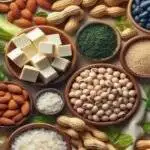
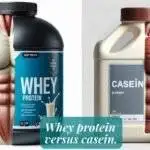

















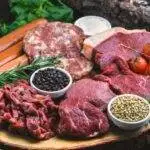






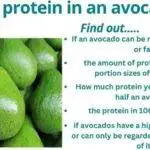
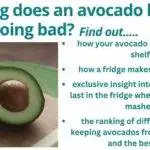
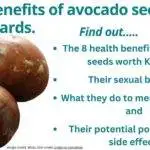


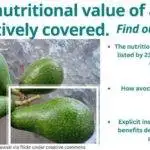
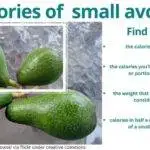
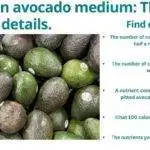
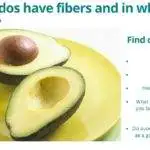


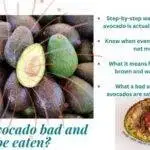





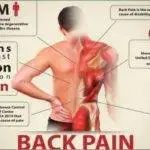






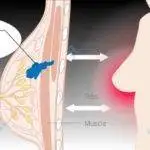

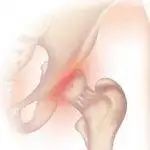



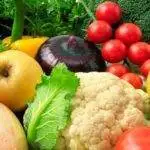




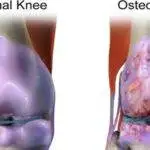
















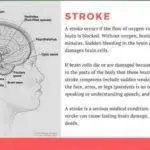





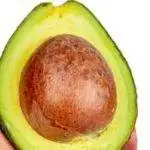



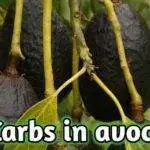







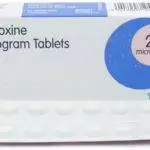


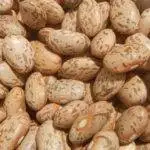









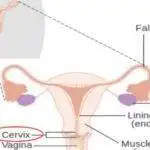










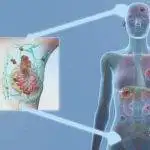


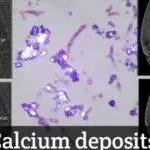






I like this post, enjoyed this one thanks for putting it up.
You made blogging look easy. The look of your site is magnificent.
You are so interesting! I do not suppose I’ve truly read something like this before.
So wonderful to find someone with a few unique thoughts on this
issue. Seriously.. thank you for sharing this. This website is one thing that is needed on the web, someone with a little originality!
This piece of writing is packed with useful information.
This is actually a nice and useful piece of info. I’m happy that you shared this useful
information with us. Please keep us updated like
this. Thanks for sharing.
Its like you read my mind! You appear to understand a
lot about this. This is magnificent blog.
An excellent read as well. I’ll certainly be back.
An excellent read!